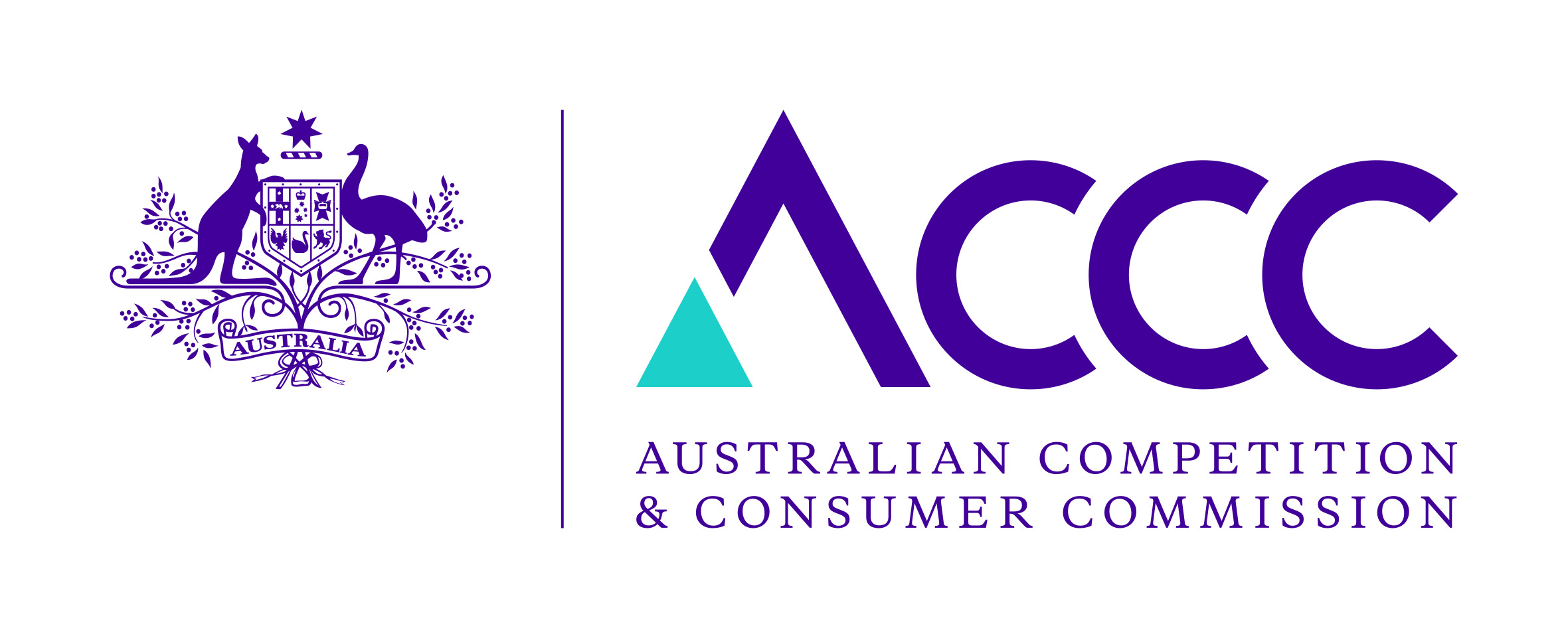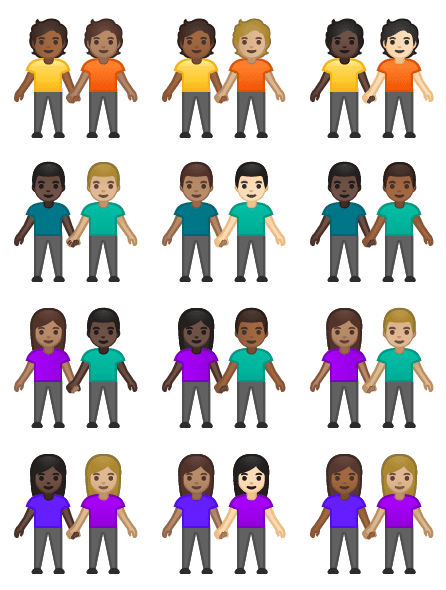Millions are 5G-ready, Facebook disagrees with ACCC recommendations, YouTube will never be "100% safe" for brands, Facebook to improve messaging privacy and new interracial couple emojis announced
This week's news roundup sees concerns raised about privacy when 5G is rolled out, with the Information Commissioner's Office raising concerns about personal data on a faster network.
Facebook has also responded to the ACCC's initial recommendations, disagreeing with the suggested extra regulations.
Google has admitted that there is very little chance YouTube will ever be totally brand-safe, although it is making changes to its advertising program to try and protect brands' reputations.
Mark Zuckerberg has announced controversial changes to messanger apps, with auto-encryption set to be rolled out.
Finally, it has been announced that interracial couple emojis will be available this year following a petition by Tinder.
Find out more about each of these stories below.
Millions ready for 5G but is privacy an issue?
Up to 15 million UK smartphone users are willing to switch over to the 5G network, according to research from Deloitte. While this eagerness to adopt the technology is yet to translate into sales, the fact that many people are ready and willing to switch to 5G means brands need to be totally mobile-ready.
With 5G comes much faster browsing times, which could affect consumers’ already dwindling patience. With only 13% of users being happy with the quality of their 4G networks, slow load speeds are sure to be an issue once more people adopt 5g.
However, the rate of adoption for 5G is likely to be slower than it was for 4G, giving brands time to get their mobile offerings right and ready. The fact that 5G mobile data networks could also pose more threats to personal data may also put people off adopting this year.
According to the Information Commissioner’s Office (ICO), the new faster network could mean threats to privacy and personal data are taken to a new level.
The ICO’s executive director for technology policy and innovation, Simon McDougall, has said that the fact that there is potential for large amounts of data to be transferred via constantly connected, high-speed networks could cause challenges. The fact that the networks can also communicate with personal devices also means that 5G could pave the way for intrusive practices.
"The kind of possibilities we currently only have via the Internet of Things in some people’s homes are going to be possible out there on the street all the time," Mr McDougall told the DMA’s Data Protection 2019 conference on March 1st.
He highlighted the fact that marketers will need to ensure they use the applications of 5G in a respectful way that doesn’t cross the line. This means maintaining usefulness rather than just pushing products and services, as well as ensuring customers’ privacy is always protected.

Facebook rejects ACCC’s key recommendations
Facebook has called out the Australian Competition and Consumer Commission (ACCC) over its recent key recommendations. The social media platform has said that the organization is only looking to protect the interests of a handful of small media companies and not journalism as a whole.
The ACCC, at the request of the Federal Government, has been looking at the impact of search engines, social media platforms and content aggregators to assess competition in media and advertising services. It previously said that both Facebook and Google may provide advertising choices, they ultimately end up competing with advertisers and so can give themselves an advantage.
Initial recommendations call for an algorithms watchdog, as well as an ad regulator to control advertising practices on Facebook and Google. However, the ACCC is still accepting submissions as part of its inquiry, with its final report due to be delivered to the Australian government by June 3rd.
In its submission, Facebook said that the ACCC’s current findings are "flawed, unsupported and inconsistent" with the commercial realities of the advertising industry.
Facebook said: "The preliminary report’s near-exclusive focus on protecting certain publishers from disruption and competition is at odds with the ACCC’s mandate to promote competition and protect consumers, and misapprehends the broader challenges facing journalism and news production."
News ranking regulator
One of the recommendations Facebook didn’t agree with was for a news ranking regulator. The ACCC suggests that a regulator is put in place to monitor and report on the news that appears in news feeds on social media.
As Facebook classes its self as a platform rather than a publisher, it says that the government and the ACCC shouldn’t be able to "appoint itself as a monitor, investigator and reporter of the daily process by which The Sydney Morning Herald predicts reader interests and chooses news articles that will appear on its front page."
Ad regulator
Facebook also disagrees with the ACCC’s recommendation that a regulator is put in place to assess adverts. It says that there is a misunderstanding about how the platform provides and delivers advertising.
Facebook says that it has no businesses to favour and, therefore, is not competing with other parties using the social media platform to advertise. It points out that "Facebook and Goole are not the same entity".

YouTube will "never be totally brand-safe," says Google
Following on from a number of brands pulling their advertising from YouTube over concerns that the platform was being used in questionable ways, Google has said that the platform may never be 100% brand-safe.
According to Nishma Robb, complete brand safety is not "the reality of the platform". Speaking at the Incorporated Society of British Advertisers’ annual conference, she said: “The reality is, the internet has dark pockets and our job is to continue to work hard to ensure we have the machines and processes to remove harmful content."
While YouTube has launched a number of strategies to try and ensure ads do not appear next to videos that could potentially harm brands – such as the demonetization of anti-vaxxer videos – but there is no guarantee that these will be successful.
According to Ms Robb, another of the platform’s strategies is changing current settings so advertisers will have more control over where they don’t want their ads to appear, potentially stopping brands from becoming associated with certain topics or videos.
She also highlighted the fact that YouTube’s artificial intelligence safeguards now catch around 98% of "extremist or violent" videos upon upload, which shows improvement, as its previous AI safeguards caught just 75% of these videos.

Facebook looking to improve privacy
Mark Zuckerberg has announced in a blog post that Facebook is set to improve privacy, with auto-encryption being introduced for all messaging services. Aimed at protecting data, the change will be put in place on messaging services across all its platforms, including Messenger and Instagram.
In a move that Mr Zuckerberg admitted would likely attract criticism, the auto-encryption would mean Facebook’s programmatic advertising would be affected, as it employs user data to target ads.
As well as encryption, the blog post said that Facebook would start to delete older messages rather than storing them indefinitely as they do now. It also will not store data in countries that have a history of abusing human rights.
Mr Zuckerberg said: "I understand that many people don’t think Facebook can or would even want to build this kind of privacy-focused platform – because frankly we don’t currently have a strong reputation for building privacy protective services, and we’ve historically focused on tools for more open sharing.
"But we’ve repeatedly shown that we can evolve to build the services that people really want, including in private messaging and stories."
While he has not given any timeline on when these changes would be made, Mr Zuckerberg said that they would be implemented within the next few years.

Interracial emojis launched
Following a petition launched by dating app Tinder, new emojis depicting interracial couples have been accepted. The Unicode Consortium, which creates emojis and reviews applications, will be releasing a number of new emojis that represent heterosexual and same-sex couples featuring a mix of skin colours.
After over 52,000 people signed Tinder’s petition, the Consortium announced that 71 new couple variations will be made available as emojis, to helping to represent more users.
In its petition, Tinder wrote: "While emojis for people of colour and emojis for same-sex couples both became a reality in 2015, one group of people is still excluded from emoji representation: interracial couples. Isn’t it time all love was represented?"
On the company blog, the dating app said: "This isn’t just about emojis, folks. Interracial couples have struggled throughout history for acceptance and representation, and these emojis are literally and figuratively important symbols."
The new couple emojis will be released as part of Unicode 12.0, which will be available in autumn.








